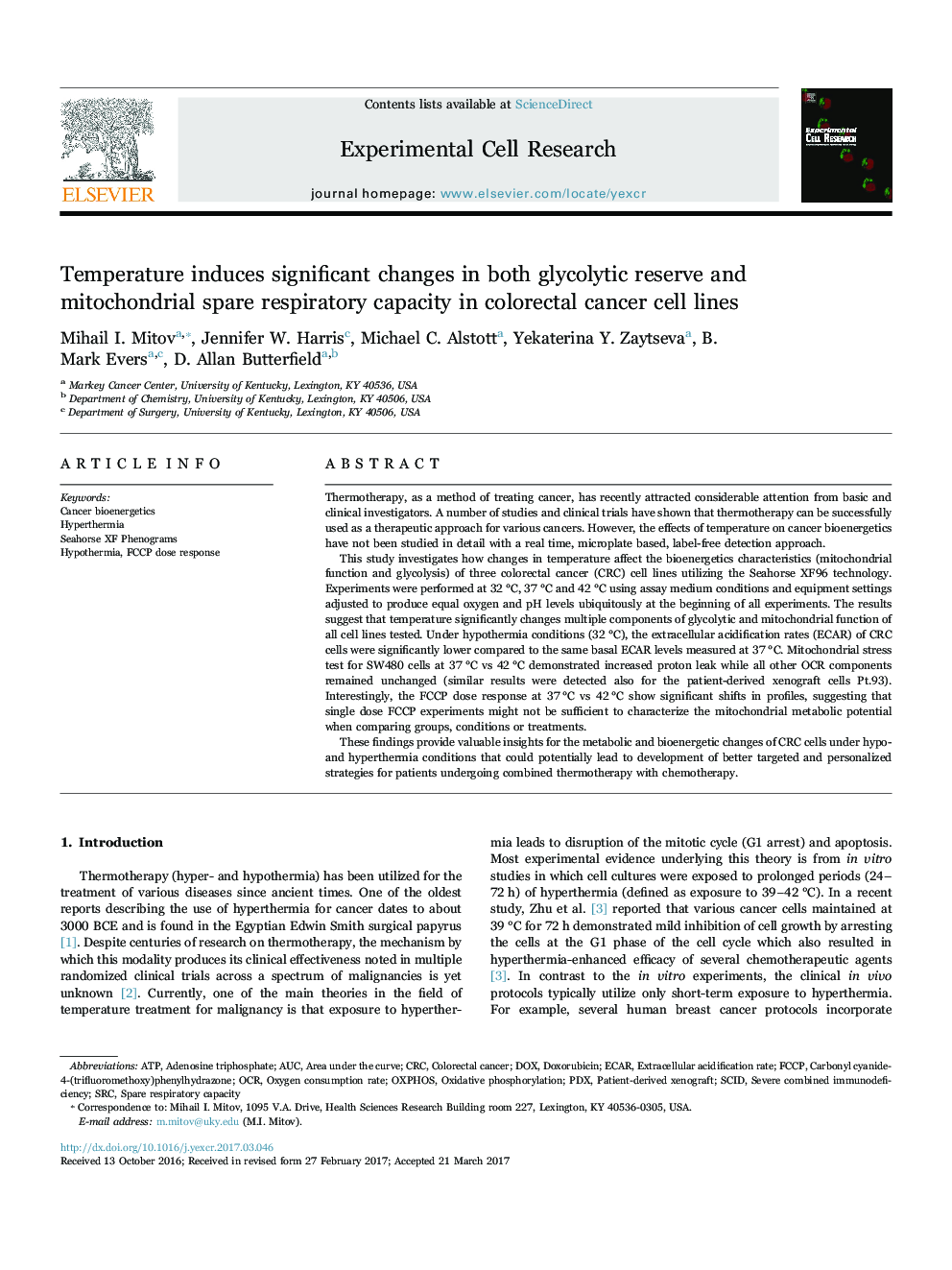| کد مقاله | کد نشریه | سال انتشار | مقاله انگلیسی | نسخه تمام متن |
|---|---|---|---|---|
| 5527229 | 1401571 | 2017 | 10 صفحه PDF | دانلود رایگان |
Thermotherapy, as a method of treating cancer, has recently attracted considerable attention from basic and clinical investigators. A number of studies and clinical trials have shown that thermotherapy can be successfully used as a therapeutic approach for various cancers. However, the effects of temperature on cancer bioenergetics have not been studied in detail with a real time, microplate based, label-free detection approach.This study investigates how changes in temperature affect the bioenergetics characteristics (mitochondrial function and glycolysis) of three colorectal cancer (CRC) cell lines utilizing the Seahorse XF96 technology. Experiments were performed at 32 °C, 37 °C and 42 °C using assay medium conditions and equipment settings adjusted to produce equal oxygen and pH levels ubiquitously at the beginning of all experiments. The results suggest that temperature significantly changes multiple components of glycolytic and mitochondrial function of all cell lines tested. Under hypothermia conditions (32 °C), the extracellular acidification rates (ECAR) of CRC cells were significantly lower compared to the same basal ECAR levels measured at 37 °C. Mitochondrial stress test for SW480 cells at 37 °C vs 42 °C demonstrated increased proton leak while all other OCR components remained unchanged (similar results were detected also for the patient-derived xenograft cells Pt.93). Interestingly, the FCCP dose response at 37 °C vs 42 °C show significant shifts in profiles, suggesting that single dose FCCP experiments might not be sufficient to characterize the mitochondrial metabolic potential when comparing groups, conditions or treatments.These findings provide valuable insights for the metabolic and bioenergetic changes of CRC cells under hypo- and hyperthermia conditions that could potentially lead to development of better targeted and personalized strategies for patients undergoing combined thermotherapy with chemotherapy.
Journal: Experimental Cell Research - Volume 354, Issue 2, 15 May 2017, Pages 112-121
